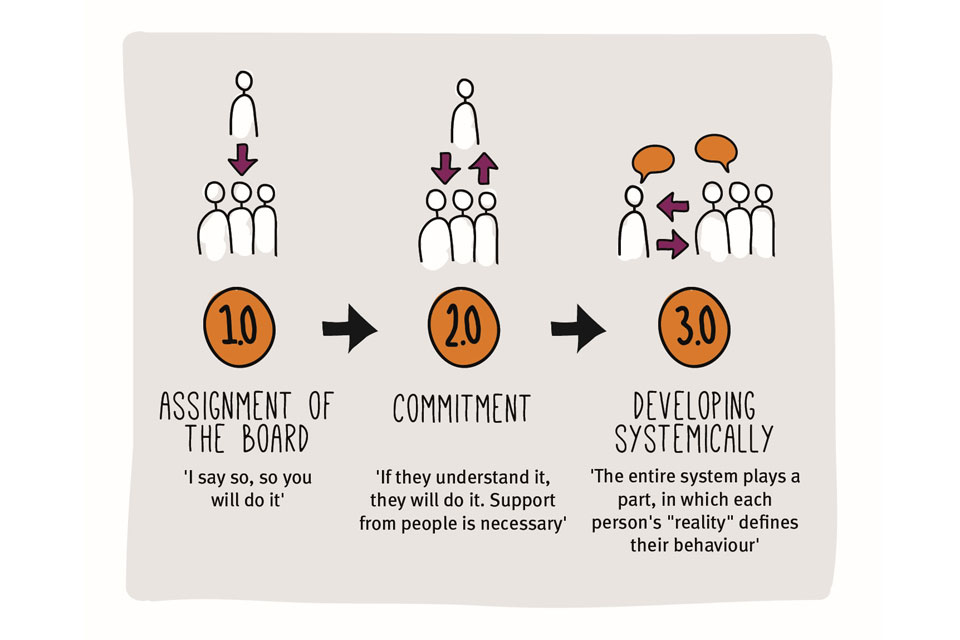Best-selling Dutch business book, ‘Change 3.0, A natural approach for sustainable organisational change’, is now available in English.
In her own words, the book’s co-author Wendy Nieuwland says organisational change is traditionally rooted in problem analysis and diagnosis; Change 3.0 takes the approach that organisational change is about a ‘change in collective (or employee) behaviour’.
As such, to elicit a successful organisational change rather than defining and solving problems, the focus needs to be working towards a desired outcome thereby influencing behavioural change to ensure that this is achieved.
To be considered ‘3.0’, a change a change needs to be self-perpetuating, because new behaviours have been established and become the new norm – if the necessary behavioural changes don’t happen, change won’t happen. Thee change doesn’t come from outside influences, but directly from within the organisation.
Nieuwland said: “Change 3.0 addresses large or complex changes such as changes in a company strategy or culture, for example – merging departments, finding new ways of working together, collaboration issues or introducing a new business model. Changes where the odds of failure are much higher, because the change goes against an (or a part of an) existing system. These are referred to as ‘tough challenges’ because they require people to do things that are fundamentally different from what they have done before.
“One of the key reasons why so many change projects fail is that nothing changes in the foundation of the organisation, what we refer to as the collective ‘constructs of reality’ which define a businesses’ collective or employee behaviour. If the (natural) collective behaviour remains unchanged, then it won’t take long for things to revert back to how they used to be.
“Change 3.0 recognises that behavioural changes happen naturally based on all kinds of influences that are largely out of our control. Behaviour and behavioural change can’t be forced; people do change their behaviour, but not because others tell them to. However, by using the fundamental knowledge of how behaviour changes naturally, it is possible to influence and steer it in a certain direction.”
Change 3.0 includes many examples and case studies on how the approach works in practice as well as providing practical challenges to try within a business environment.
It’s available now from all good book outlets (and some bad ones too).







